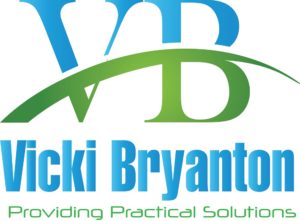Pandemic HR: What Not-for-Profit Boards Need to Consider
Basics for Not-for-profit Boards to Consider during the COVID-19 Pandemic
(Updated April 8, 2020)
Your responsibilities as a volunteer Board do not change during this COVID-19 crisis. In fact, you will need to take some extra steps to ensure that you are performing your due diligence during these challenging times.
The following steps are recommended to help you with your due diligence as a volunteer board and board director.
- Document, in writing, the steps that are being taken and the dates on which those action items are taking place.
2. The Board should meet (by conference/video call) as soon as possible and as often as needed.
-
-
- Check your Bylaws to make sure that decisions can be made at meetings that are not face-to-face.
-
3. Monitor federal, provincial and local public policy and public health-related orders, directives and restrictions which may impact your not-for-profit’s operations.
-
-
- Keep in mind that the services your not-for-profit provides will affect whether you are an essential service or not.
-
4. Review any existing risk management, disaster recovery and remote access policies and, if these are not in place, consider setting up policies as soon as possible.
5. Have your Executive Director, CEO, or seniors staff person keep the Board up to date on appropriate health and safety measures for staff, volunteers, and those you serve so any potential exposure to COVID-19 is either reasonably minimized or eliminated.
6. Evaluate and address risks related to employee shortages, project cancellations, disruptions, and delays.
7. Review insurance policies, including directors’ and officers’ insurance and business interruption insurance, if applicable, as well as any travel insurance policies covering staff or volunteers.
-
-
- You will likely find that much of your insurance will not cover the COVID-19 impacts.
-
8. Review all funding or other agreements with governments or other agencies to determine your obligations to deliver services or other goods and how that may be impacted by COVID-19.
9. Review the financial health of your organization by determining the anticipated impact of COVID19 upon donations, grants, investment returns, sponsorship income, membership income, sale of materials, and any other sources of income and then support your staff in planning to offset the anticipated reduction in income.
10. Make sure that salaries of employees continue to be paid on a timely basis, otherwise directors can be left exposed to personal liability for unpaid salary and vacation pay.
11. Ensure that all employee statutory deductions and HST/GST remittances are paid on a timely basis, otherwise directors can be exposed to personal liability.
12. If you have to consider layoffs, check into the supports that the federal and provincial governments are opening up to allow you to keep staff in place.
-
-
- As of March 31, 2020 – the federal government announced an up to 75% wage subsidy for qualifying businesses (including not-for-profits), for up to 3 months, retroactive to March 15, 2020. This will help businesses to keep and return workers to the payroll.
- More details will be announced soon.
-
13. If you have to consider eliminating employees, get legal advice from employment counsel first to be confident in your decision.
14. Annual Meetings of your Members that are due to occur between now and September 2020 need to be addressed. Don’t assume that you can let things slide right now!
-
-
- Check your Bylaws to determine if they allow you to change the date from its usual time or hold the meeting by phone/electronic means. Follow the steps that your bylaws allow.
- If your Bylaws do not allow you the flexibility to change the date or hold a phone/electronic meeting of the Members.
-
15. Communication is very important at this time. Manage external and internal communications with staff, volunteers, those you serve, and your usual contacts with counterparts with a view to mitigate or reduce the impact of the crisis on the whole organization.
Remember that everyone is under extra stress at this time. Be considerate of the fears, concerns, and distractions of staff and volunteers. Stay informed and do your best – the keys to due diligence!
Sources:
Carter, Terrance S. and Ryan M. Prendergast. Due Diligence by Directors and Officers of Charities and NFPs in Response to COVID-19. Charity & NFP Law Bulletin No. 464. Toronto, ON. March 24, 2020. http://www.carters.ca/pub/update/charity/20/mar20.pdf#tc1 (Accessed March 31, 2020.)
Canada’s COVID-19 Economic Response Plan https://www.canada.ca/en/department-finance/economic-response-plan.html. (Accessed March 31, 2020.)





